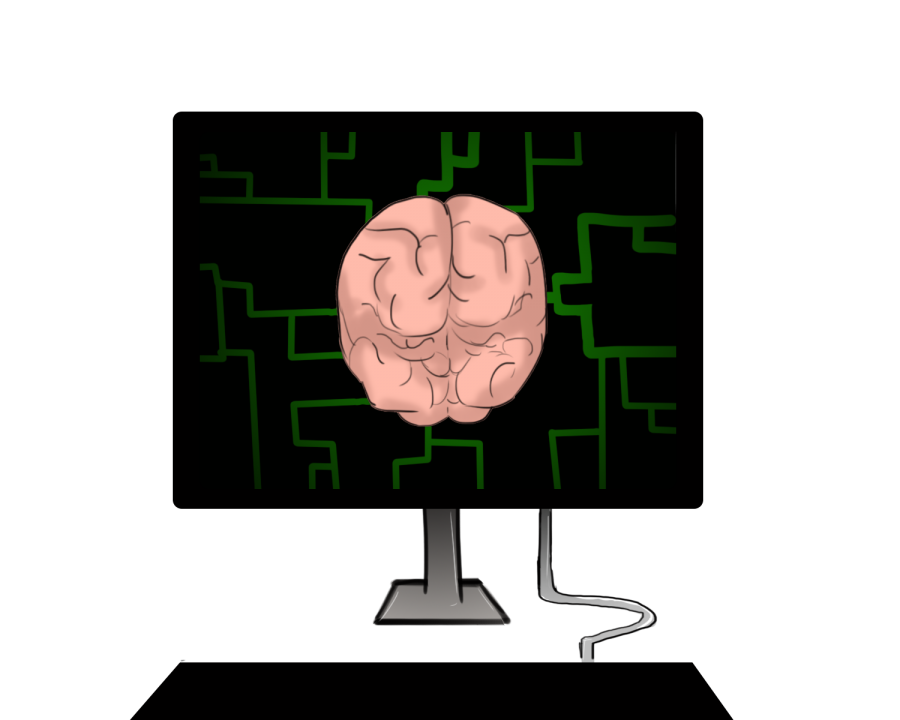It’s often said that artificial intelligence is no match for natural stupidity. While computers can’t learn to expect every moment of stupidity humans throw their way, they can learn how to respond to these moments without instructions. This is made possible through machine learning, a type of computer programming to create artificial intelligence, but not the typical kind.
Usually, programmers tell machines what response to generate when they receive a specific command, allowing humans to have complete control over the machine. When computers run on machine-learning algorithms, they aren’t told how to respond to these commands. Instead, they create their own responses and programmers either acknowledge that they were right or tell them to perform better the next time.
This process is essentially the behavior modification of technology, while also allowing the technology itself to experience a form of free thought. By forcing computers to make connections for themselves, a system that parallels neural pathways is created.
Machine learning is widely used for pattern recognition. Technology can utilize its knowledge to generate answers and recognize trends that span thousands of pieces of material, accomplishing something that might take humans weeks to discover.
On a commercial level, it is used for data mining—or discovering patterns in data. This helps companies accomplish things like figuring out viewer demographics and discovering which of their products is most popular. However, the algorithm is not constrained to commercial use.
“In the past decade, machine learning has given us self-driving cars, practical speech recognition, effective web search, and a vastly improved understanding of the human genome,” said Stanford professor Andrew Ng in the description of his college course on machine learning. “Machine learning is so pervasive today that you probably use it dozens of times a day without knowing it.”
The prominence of patterns in our lives has created many opportunities for machine learning technology to be implemented, and this implementation is limitless and can alter our future.
Machine learning can change the way we learn. Currently, the technology speeds up certain calculations and analyses, making life easier for its users. However, when it becomes more sophisticated, we can depend on machines to do all of the work without having to understand the number crunching ourselves.
To take this one step further, students will be able to abstain from learning certain things that can be done by machines. Particular math courses, such as statistics and calculus, could become extinct because machine learning algorithms can solve their problems. There would simply be no point in learning something that can be accomplished more efficiently by a machine.
Not only will machine learning affect what we learn, but it can also change how we learn it. Computers that use this type of programming can run the classroom, altering the very definition of the modern school.
“Cognitive computing, or learning technologies, will help us calculate everything we can about how each student learns and thrives, then create flexibility in the system to continually adapt and fine-tune what we deliver to that student and how this supports teachers and employers,” said Katharine Frase, Vice President and Chief Technology Officer of IBM.
If the classroom can tailor itself to each student’s learning habits, capabilities and preferences, school will become much more effective. Frase’s article furthers that computers will be able to create lesson plans and gear coursework toward a specific career, and that this futuristic version of reality can easily be seen within the next five years.
When computers structure the lessons, they hijack the role of teachers. It is possible that this technology will replace human teachers with hard drives, just as it has already started to replace brick-and-mortar classrooms with Skype sessions. The MSON classes that are offered at school are just a baby step in the direction of a full-fledged educational technology takeover. However, the idea of a digital teacher doesn’t thrill students who are already a part of the shift to computer-driven education.
“I don’t think it would be awkward [if computers were teachers]; I think it’d just be weird,” said Allice Park, a senior currently enrolled in MSON’s Honors American Food System course. “I feel that you need to always have a human to talk to, even if it’s a video. You can’t communicate with computers like you can with humans.”
Though this situation would eliminate human interaction in classes, the material and pace of such classes could improve by using the technology to cater to the specific needs of students.
Machine learning programming goes beyond just education: its effects seep into our own minds’ programming and can alter the way we think. Technology makes it unnecessary to consider the steps taken to arrive at an answer; breaking down barriers that could have stumped us before. Eventually, humans can fall into a routine of neglecting these processes, which would create a society that is even more pragmatic than the one that exists today.
But pragmatism is something that should be embraced. The sooner answers are achieved, the sooner they can be applied to other things. Historical precedent set by the invention of the printing press shows that when the new technology is used in a way that affects the whole world, new eras of learning begin. Artificial intelligence serves the role of the printing press and puts the world as we know it on the dawn of a new era of learning. After all, computer programming is only accomplishing what all new technologies, including the printing press, have accomplished for centuries: the broadening of the horizons of the future by heightening human’s abilities to be efficient, curious and knowledgeable.
Before the next great age of human history steals all of our attention, we have to evaluate how machine learning technologies can become too useful. The efficiency of such computers is attractive to employers, and the computers themselves can end up taking workers’ opportunities by eliminating jobs.
Instead of assisting workers in their day-to-day lives, artificial intelligence can bar people from reaching their dream job by taking it away from them. This leaves people who are looking to enter the labor force, particularly in technology-heavy fields of work, more focused on job security than an excitement to use advanced computers.
“Sure, computers can make my life easier, or they can just leave me out of a job altogether,” said Will Haftel, a senior who hopes to be a computer engineer.
Though machine learning software can achieve certain aspects of computer engineers’ jobs, humans are essential for other tasks. Besides, if artificial intelligence completes some of the tasks involved in a profession, that profession can evolve to include more advanced ideas that can be discovered through the use of technology. The job itself can change, creating new tasks for modern workers.
Whether it’s in the classroom, in our heads or in the future, the impact of machine learning is incredible and infinite. Technology like this is what drives the evolution of the world, and it will usher in many changes in our lifetimes. Who knows, the growing strength of machine learning could give birth to an artificial intelligence that can outwit the most unpredictable thing there is: natural stupidity.











